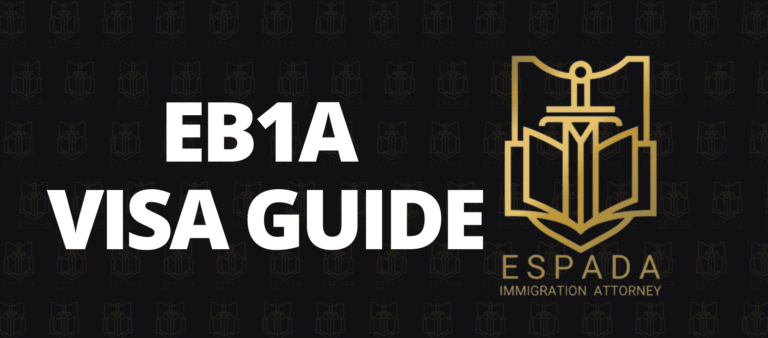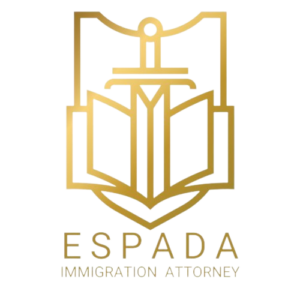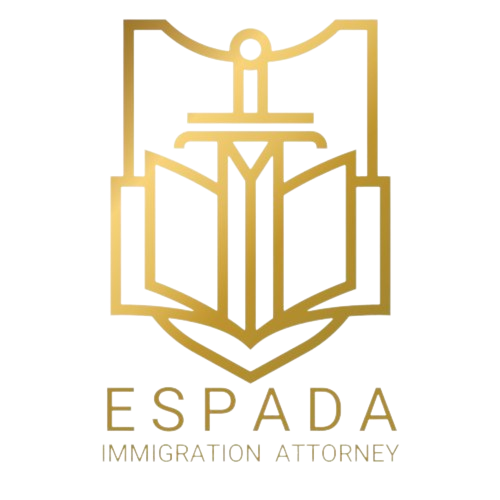Comprehensive Guide to the EB1A Visa: All You Need to Know

The EB1A visa offers an excellent pathway for individuals with extraordinary abilities in fields such as arts, sciences, business, education, or athletics.
One of the key advantages of the EB1A visa is that it allows you to secure a green card without requiring a job offer from a U.S. employer. Additionally, since the EB1A visa qualifies for premium processing, your application can be reviewed in as little as 15 days.
This guide will provide you with essential information about the EB1A visa and its application process.
If you have any questions about the EB1A visa, feel free to reach out via email. My team of experienced U.S. immigration lawyers and I are here to assist you in navigating the process and securing your EB1A visa.
Overview:
1. What is the EB1A Visa?
2. What are the Benefits of an EB1A Visa?
3. What are the EB1A Visa Requirements? (How to Get an EB1A Visa)
4. How Does USCIS Decide Whether to Approve or Deny an EB1A Visa Petition?
5. What Documents are Needed to Apply for an EB1A Visa?
6. Conclusion
1. What is the EB1A Visa?
The EB1A Visa
The EB1A visa is an immigrant visa designed for individuals who have exceptional skills in specific fields. It is intended for foreign nationals who demonstrate extraordinary ability in areas such as the arts, sciences, business, education, or athletics.
Eligibility Requirements
To qualify for an EB1A visa, you must demonstrate that you possess extraordinary ability in your field and intend to continue working in that area upon arriving in the United States.
Defining Extraordinary Ability
Extraordinary ability refers to being among the very few individuals who have reached the pinnacle of their profession. There are various ways to establish extraordinary ability, such as winning prestigious awards, earning significantly higher salaries than peers in your field, and other relevant factors (which will be discussed in detail below).
Benefits of EB1A
The EB1A visa offers a green card to the applicant, as well as to their spouse and children. Additionally, it allows for self-petition, meaning applicants can file for the visa independently, without the need for a U.S. employer.
Summary
- The EB1A visa is an immigrant visa for individuals with exceptional skills in the arts, sciences, business, education, or athletics.
- It is designed for those who have reached the highest levels in their profession.
- To qualify, you must prove extraordinary ability and demonstrate your intent to continue working in your field upon arriving in the U.S.
2. What are the Benefits of an EB1A Visa?
The EB1A visa does not require a US company sponsor:
Most employment-based immigrant visas require you to secure a job offer from a US employer. Additionally, a US employer typically needs to obtain an approved Labor Certification. This document proves that the employer attempted to hire a qualified US worker but was unable to find one for the position they are offering. However, with the EB1A visa, neither a job offer from a US company nor a Labor Certification is necessary. You can apply for an EB1A visa through a self-petition process, meaning you can apply on your own without needing a company to sponsor you.
The EB1A visa is an immigrant visa:
- There are two main categories of visas: immigrant and non-immigrant visas.
- Immigrant visas lead to a green card, granting lawful permanent residency.
- In contrast, non-immigrant visas are temporary and do not provide a path to a green card.
- Since the EB1A visa is an immigrant visa, a successful application results in eligibility for a US green card.
- Your spouse and unmarried children under the age of 21 can also receive green cards if your EB1A visa is approved.
The EB1A visa is eligible for premium processing:
Premium processing is a service provided by USCIS for certain visa categories. If you choose premium processing, USCIS will review your petition and provide a decision within 15 days. The fee for premium processing is $1,440. Since the EB1A visa is eligible for this service, you can expect a faster response—within just 15 days—compared to most other visa types.
3. What are the EB1A Visa Requirements? (How to Get an EB1A Visa)
To get an EB1A visa, you need to prove three key points:
- You possess extraordinary ability in a field such as the sciences, arts, education, business, or athletics.
- You are coming to the United States to continue working in your area of extraordinary ability.
- Your entry into the United States will offer significant benefits to the country.
How to Prove That You Have Extraordinary Ability
Proving extraordinary ability is the most crucial part of the EB1A visa application process. This section is so important that we will break it down step-by-step.
1. What is Extraordinary Ability?
Extraordinary ability refers to a high level of expertise indicating that the individual has reached the top tier of their field of endeavor. [8CFR Section 204.5(h)(2)]
2. How Do You Prove Extraordinary Ability?
To establish extraordinary ability, you must provide evidence that shows you have received sustained national or international acclaim and that your achievements are recognized in your field of expertise. [8CFR Section 204.5(h)(3)]
3. How Do You Prove Sustained National or International Recognition?
There are two ways to demonstrate this:
- A significant one-time achievement.
- Alternatively, proof that you meet at least three of the ten evidentiary criteria for an EB1A visa (outlined below).
One-Time Achievement
A one-time achievement must be an internationally recognized major award, such as the Nobel Peace Prize, an Academy Award, or a Grammy. If you have won one of these prestigious awards, it will likely suffice to prove your sustained acclaim and recognized achievements in your field.
If you don’t have such an award, you will need to meet at least three of the ten criteria discussed below.
Evidentiary Criteria for EB1A Visa
If you do not have a major international award or recognition, you need to satisfy at least three of the following criteria:
- Receipt of lesser national or international prizes for excellence in your field.
- Membership in associations that require outstanding achievements, as judged by national or international experts in your field.
- Published material about you in professional or major trade publications or other prominent media related to your work.
- Participation as a judge of the work of others in the same or related field.
- Significant original contributions to your field, whether scientific, artistic, athletic, or business-related.
- Authorship of scholarly articles in your field, in professional journals or major media.
- Display of your work at artistic exhibitions or showcases.
- Holding a leading or critical role in reputable organizations or establishments.
- Earning a high salary or remuneration in comparison to others in your field.
- Achieving commercial success in the performing arts, as shown by box office receipts or sales.
If some criteria do not apply to your field, you may submit equivalent evidence to demonstrate your eligibility. For instance, if you are a renowned chef, you might not have evidence of commercial success in the performing arts, but you could provide proof of high commercial success from a cookbook you authored.
How to Prove That You Are Coming to the United States to Continue Working in Your Field
In addition to proving your extraordinary ability, you must show that you plan to continue working in your field of expertise in the U.S. This can be done with clear evidence, such as:
- Letters from potential U.S. employers in your field.
- Contracts with U.S. companies showing your commitment to working in your area of extraordinary ability.
- A written statement outlining your plans to come to the U.S. and continue your work.
Note that a job offer is not required.
How to Prove That Your Entry to the U.S. Will Substantially Benefit the Country
To meet the final requirement for an EB1A visa, you must demonstrate that your entry to the U.S. will provide significant benefits. Generally, it is assumed that working in your area of extraordinary ability will inherently benefit the U.S. You usually do not need to submit additional evidence beyond a written statement explaining how your work will benefit the country.
4. How Does USCIS Decide Whether to Approve or Deny an EB1A Visa Petition?
USCIS follows a two-step process when evaluating an EB1A petition:
Step-1: Evidentiary Threshold
At this stage, USCIS verifies that you have provided evidence fulfilling at least 3 of the 10 specified criteria.
The quality and strength of the evidence you present are considered during this phase.
If you fail to meet at least 3 of the criteria, your application will be rejected at this stage.
At this point, USCIS does not assess whether you belong to the top tier of your field.
Step-2: Final Merits Determination
In this phase, USCIS reviews all the evidence you have submitted to evaluate whether you qualify as an individual of extraordinary ability.
This is the stage where USCIS determines if you have reached the highest level in your field.
USCIS also considers whether you have achieved “sustained national or international acclaim” and whether your accomplishments are recognized within your area of expertise.
Quick Summary of the Evaluation Process
Some individuals assume that meeting 3 of the evidentiary criteria automatically qualifies them for an EB1A visa.
However, this is incorrect!
In addition to demonstrating achievements like high salary, awards, or published works, you must also meet the definition of extraordinary ability.
To reiterate, extraordinary ability refers to “a level of expertise indicating that the individual is one of that small percentage who have risen to the very top of the field of endeavor.” [8CFR Section 204.5(h)(2)]
This is a high bar, but it is attainable for the right candidate.
5. What Documents are Needed to Apply for an EB1A Visa?
The evidence that you submit in support of your EB1A application is extremely important to get approved.
The documents required for your EB1A application will vary based on your specific achievements, publications, accolades, and other factors.
With that in mind, here is a general list of documents you may need to provide to your immigration lawyer:
- Your resume or CV
- Copies of your passport for you and your family
- Evidence of your extraordinary ability (This can include copies of your publications, evidence of any awards you have received, pay stubs showing a salary higher than that of your peers, citation records, and other relevant documentation.)
- Letters of recommendation and endorsement from experts and professionals in your field.
- Evidence of the type of work you will be doing in the USA (This may include a job offer, a work contract, or a signed statement outlining the work you will be engaged in while in the USA.)
- Important Note Regarding Letters of Endorsement:
Letters of endorsement from industry experts play a critical role in your EB1A visa application. However, they should not be the primary evidence to demonstrate your extraordinary ability. These letters are valuable for providing context and emphasizing the significance of your achievements and contributions to your field. It’s advisable to start thinking about potential endorsers well in advance of your EB1A visa application process.
6. Conclusion
The EB1A visa is a great option for the right candidate.
If you possess extraordinary abilities in fields such as the arts, sciences, athletics, business, or education, the EB1A visa is a viable option worth exploring.
Defining Extraordinary Ability
Extraordinary ability refers to a level of expertise that signifies the individual has reached the pinnacle of their field, standing out among a small group of top performers.
Demonstrating Extraordinary Ability
To demonstrate extraordinary ability, you must show evidence of “sustained national or international acclaim” and that your “achievements have been recognized in your field of expertise” [8CFR Section 204.5(h)(3)].
Evidence for Proving Your Qualifications
You can prove your sustained acclaim and recognition in your field by providing evidence of a significant achievement or by meeting at least three of the 10 criteria outlined above.
Conclusion
With this information, you should now be in a better position to evaluate whether the EB1A visa is a suitable option for you.
If you have any questions about the information shared here, don’t hesitate to contact me. I’m very responsive via email and would be happy to assist with any inquiries.
Resources:
- Business Immigration: Law & Practice, 2nd Ed. – Vol. 2: Chapter 3
- 8CFR Section 204.5(h)(2)
- 8CFR Section 204.5(h)(3)
Why Choose Us
Choosing the right immigration lawyer can make all the difference in achieving your U.S. immigration goals. At Espada Immigration Lawyer, we are dedicated to providing exceptional legal guidance and personalized support through every step of the process. Our team combines specialized expertise, transparency, and an unwavering commitment to client success, making us a trusted partner for all your immigration needs.
- Specialized Expertise
- Personalized Approach
- Transparent Guidance
- Client-Centered Commitment

DISCLAIMER: This article is provided for general informational purposes only and does not constitute legal advice. The information herein should not be interpreted as formal legal counsel nor does it establish an attorney-client relationship. This article is neither intended as a solicitation for legal services nor as a substitute for individual legal advice. For specific legal guidance, please consult an attorney in your jurisdiction. Actions based on information in this article are taken at your own risk, and I disclaim any liability for such actions. Please note that information may have changed since publication and may no longer be current. This article does not offer guarantees, warranties, or predictions regarding the outcome of any legal matters. Each case is unique, and results will depend on individual facts and legal issues. Thank you.
ATTORNEY ADVERTISING: Any invitation to contact our law firm on this website and related pages constitutes attorney advertising.
